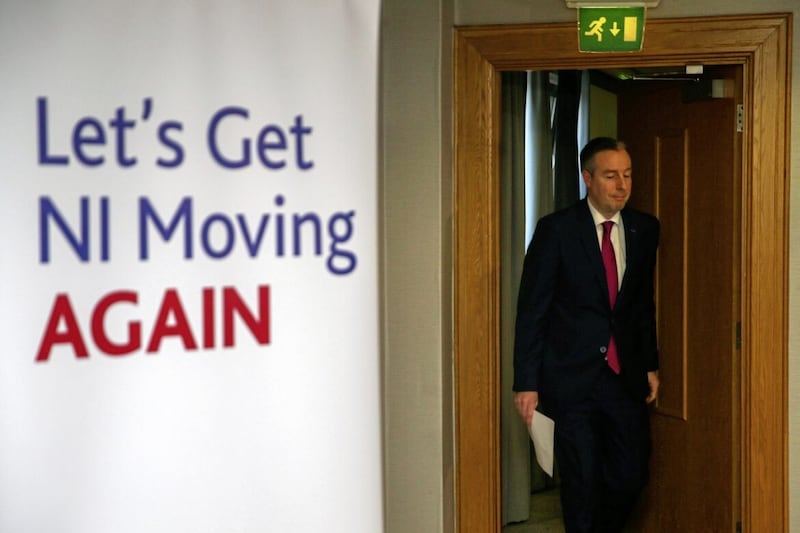YOU have to wonder what “witty put-downs and clever insults” might be doing the rounds in DUP circles this week as the party looks set to ready itself to go back into Stormont, if speculation is to be believed.
Former leader Peter Robinson’s promotional media tour to tout his new book with the above title, just in time for the Christmas market, has afforded the opportunity to ask him questions about the direction of travel of the party and where he thinks it should go in the short to medium term.
Windsor Framework a good deal for DUP, says Robinson
His assessment is that unionism has gotten a good deal so far in respect of the Withdrawal Agreement and the Windsor Framework and that the best way to make further progress is within the structures of the Stormont institutions.
Which is kind of what Doug Beattie has been saying all along.
Read more:
- Former DUP leader Peter Robinson warns unionists that not all demands will be met
- Even Peter Robinson knows the game is up – the DUP needs to get back to Stormont
- John Manley: Sir Jeffrey has made the climbdown harder by stringing out the drama
The phrase that haunted Arlene Foster about the protocol having the opportunity to provide the best of both worlds has even been uttered this week again in the context of trying to come up with workable solutions that can be sold to the party hardliners.
There is also some speculation as to whether or not the DUP has abandoned the “seven tests” it set out in respect of any arrangements regarding Brexit.
Back in February, when the Windsor Framework was agreed between Britain and the EU, no one really expected the DUP to give an opinion on it in advance of the local council elections. Jim Allister also said that those tests gave the party too much wiggle room.

The first of the tests was the amendment to the Acts of Union. It’s a matter which has been adjudicated by the Supreme Court in London. Surely as loyal British subjects, the DUP must accept that ruling?
Tests two, three and five, in relation to diversion of trade, the Irish Sea border and checks on goods coming into the north from Britain, have been substantively dealt with by the red/green lane system. The Stormont institutions have the capacity for further refine the operation of these processes to ensure minimal negative impact. Businesses for he most part have just gotten on with it anyway.
Tests four and six relate to giving the people of the north a say in laws and regulatory compliance. The Stormont Brake is where DUP negotiations with the British government are most likely to have focussed in the past few weeks as the party will want reassurance that, if triggered by 30-plus members of the Assembly, Westminster will take action.
North subject to EU law despite Brexit
It is worth remembering that neither the protocol nor the Windsor Framework make the north subject to EU law. Only laws that are enacted by the Westminster Parliament or the Stormont Assembly can apply in the north as a result of Brexit, so if certain EU rules continue to apply here it is because one of those two legislatures has brought forward to make that the case.
Read more:
- Maybe Peter Robinson was secretly jealous he could never be one of the 'Chuckle Brothers' - Mary Kelly
- The DUP will not go into Stormont and SF will not go into Westminster. We are the only people in the world who vote for politicians not to represent us – Patrick Murphy
- There's no plan to deal with the mess the DUP has created - Brian Feeney
Peter Robinson’s intervention is two-fold. Firstly, he can say stuff that Jeffrey Donaldson can’t say as party leader currently engaged in negotiations within his own organisation, in circumstances where senior party figures are anonymously briefing the media with conflicting accounts.
More importantly, Robinson is the lightning rod for all those within unionism who don’t want a return to Stormont. By saying he thinks the DUP should commit to devolution, he is hoping that by the time it happens (if it happens) in December or January, much of the wind will have gone out of the sails of Donaldson’s critics.

In order to fully participate in the Executive, the DUP will need to present a united front and work on its internal issues.
There is no benefit to be gained by the political parties truly committed to devolution in spinning a DUP return as a climb-down or surrender when there will be enough of the not-so-witty “Lundy” comments coming from the back benches.
Practicality and pragmatism and a programme for government are far more important after such a long suspension.







